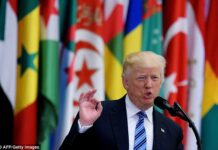Tensions between Uganda and Germany escalated this week after Kampala accused the German ambassador of “subversive activities” – claims Berlin has rejected as “absurd and baseless.”
Speaking in Berlin on Monday, German Federal Foreign Office spokesperson Kathrin Deschauer dismissed Uganda’s accusations, stating that “there is no formalised military cooperation with Uganda… so there is nothing to cancel,” after the Ugandan army claimed it had suspended all defence and military cooperation with Germany.
The Ugandan military’s announcement came amid allegations that German Ambassador Mathias Schauer had engaged in activities that undermined Uganda’s internal stability. However, no evidence has been publicly presented to substantiate the claims.
The fallout follows a reportedly tense diplomatic engagement involving European envoys who criticised General Muhoozi Kainerugaba, the son of President Yoweri Museveni, during a meeting with Museveni’s brother, General Salim Saleh.
According to local media, Saleh assured the diplomats he would “rein in” Kainerugaba, who is widely seen as Museveni’s likely successor.
Kainerugaba, known for his erratic and sometimes provocative social media posts, has long been a controversial figure both domestically and abroad. His growing political influence and perceived succession ambitions have unsettled foreign partners and internal factions alike.
Human rights organisations have warned of a renewed government crackdown on dissent ahead of the January 2026 general elections, where Museveni is expected to seek a seventh term in office. Critics say the government has intensified arrests, surveillance, and intimidation of opposition leaders and activists.
While the German government has not recalled Ambassador Schauer, the diplomatic row highlights growing friction between Uganda and Western partners, as scrutiny over governance, succession, and human rights intensifies.



















